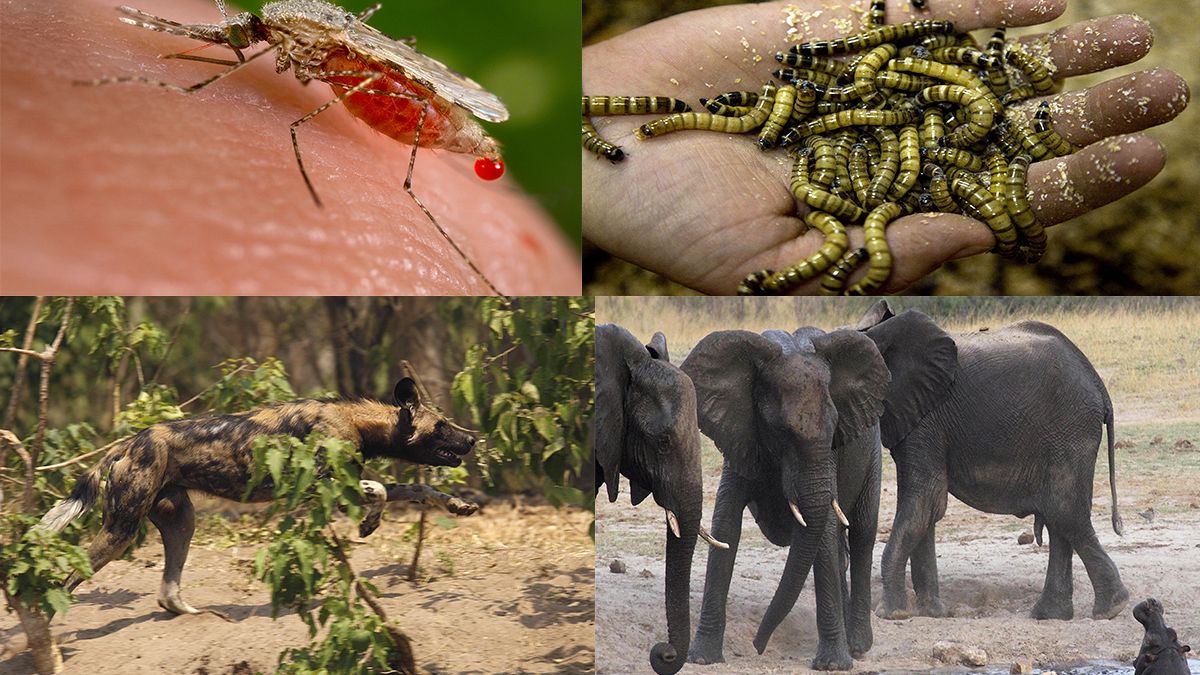Mosquitoes (all genera combined) kill more than 500,000 people worldwide each year. That makes them the second most deadly species to humans after humans themselves, who killed – through homicide, war and terrorism – an estimated 558,133 in 2012 (and the number of conflict-and terrorism-related deaths has risen significantly since then).
Deaths caused by mosquitoes relate to diseases such as malaria, yellow fever and dengue fever.
After mosquitoes, worms are the second most deadly non-human creature – if we exclude swine, which in the exceptional 2009/2010 outbreak of swine flu are reported to have claimed 285,000 human lives. Worms kill more than 190,000 per year via diseases such as Taeniasis, Cysticercosis, Echinococcosis and soil-transmitted helminth infections.
Diseases much more dangerous than attacks
The human mind might consider the likes of sharks, bears and lions as the most dangerous members of the animal kingdom. But they don’t come close compared to the threats posed by much smaller creatures. Sharks accounted for just six human deaths in 2015 and bears five, while ants killed around 30 people. Human deaths resulting from an actual bite (and not a subsequent disease) total around 107,000 per year, and in 94 percent of those cases a snake was the guilty party.
Diseases transmitted by animals however kill around a million people each year, and that’s not even taking into account sporadic outbreaks, like swine flu in 2009/2010.
Euronews has compiled the following list of the world’s deadliest animals along with the estimated annual number of deaths and the diseases related to each animal.


